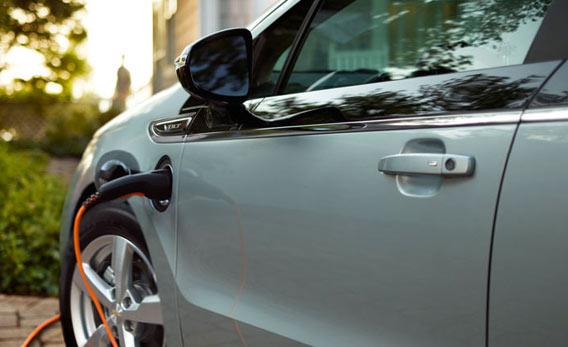Is there pent-up demand for a $75,000 electric SUV that can outrun a Porsche? South African entrepreneur Elon Musk is gambling that there is. Other entrepreneurs are making similar bets: More than a dozen countries and thousands of incumbent and startup entrepreneurial companies around the world have placed competing chips on the table with the conviction that advanced batteries and electrified vehicles are the next new thing. All together, they will park some two dozen models in Asian, European, and U.S. showrooms in 2012 and 2013.
But a nagging dread is creeping in among the first-mover electric crowd. GM and Nissan, the first out with new electrified vehicles, had combined sales of just 26,000 Volts and Leafs last year. On March 4, GM announced a five-week suspension of Volt production because of low sales numbers. Startup Aptera Motors shut down in December; battery-maker Ener1 filed for Chapter 11 protection in January; and Bright Automotive—spun out of a consortium consisting of Google.org, the Rocky Mountain Institute, and the Turner Foundation—announced its closure on Feb. 29. These troubling signs have led some with skin in the game to start doubting their investment.
There are three ways to look at the slump electric cars are experiencing. It could be a premature innovation, like Édouard Belin’s 1925 fax machine. Science, medicine, and technology are filled with examples of legendary premature inventions. In addition to Belin’s early fax machine, Charles Babbage invented a working computer in 1834, and Leonardo da Vinci designed the parachute in the late 15th century.
Or perhaps the whole supply chain—from startups making battery cells to factories assembling the vehicles themselves—is wandering in the much-feared “valley of death,” that vast netherworld between invention and successful commercialization where most new businesses fail, sometimes because they lack what it takes, and in other cases for a simple lack of sufficient cash. While being in the valley and being premature may feel similar, the malady and hence the cure may be very different. If a groundbreaking product is in the valley, its backers merely need the wherewithal to keep going—no small feat, if one must hang on for five years to see a profit. But if the electrified vehicle isn’t anywhere near ready for the market, there is a serious problem; tens of billions of dollars in bets may be lost to posterity.
Or, worst of all, maybe electric cars will never take off at all. The mood was so glum at a big annual battery convention that I attended in Orlando, Fla., last month that some industry hands suggested their work has been a complete waste of time. Electrified vehicles are serving “a small niche, and that’s probably all they’re ever going to be,” David Raney, a former executive of Honda Motors, told me.
There is good reason to conclude that electrified vehicle creators may not be the latest Charles Babbages, and despite this rough patch will soon play a major role in the automotive industry. Consider who holds the betting line against them: Big Oil, which has a highly personal reason to cast a skeptical eye—namely, self-survival. ExxonMobil and BP, among others, have issued 25- and 30-year projections saying that motorists will embrace the marginal added fuel efficiency of cars like the Prius with smallish batteries, but not pure electrics like the Leaf or plug-in hybrids like the Volt. These Big Oil projections assert that the electric crowd will fail to produce the innovations necessary for plug-in hybrids or electric cars to make a big commercial splash. Instead, says ExxonMobil, 90 percent of global transportation will continue to be fossil fuels at least through 2040.
It is arguable that plug-in hybrids are early, even very early, but would you bet the company on chronic scientific and commercial failure lasting three decades? If the electric crowd is guilty of hope-led naiveté, Exxon and BP may be misleading themselves through self-interest-driven blindness.
Yet the electric-car industry remains uncertain as to where it is situated in the innovation cycle. The other side of the valley of death—to be reached at the earliest when the next generation of lithium-ion batteries lowers the price of electrified cars—is at least three to five years in the future, industry hands believe. At this point, electrified vehicles can begin to seriously close the price-and-performance gap with gasoline-driven cars, allowing them to commence a long ascent toward a mass consumer market. But until that starts, one must survive.
So how can companies end up like Thomas Edison and avoid the fate of his commercial failure rival—Nikola Tesla, a legend only in death, and the namesake of Musk’s electric company?
Musk’s solution is to grapple with the market currently at hand. In the case of electric cars, there is no mass consumer market as yet. So he has sold out a niche $109,000 sports car and begun to work his way gradually down the pricing scale. Electric cars are following the long innovation-and-commercial arc of cell phones, asserts Ricardo Reyes, Musk’s vice president of public communications. “[Cellphones] were almost prohibitively expensive at first,” Reyes told me. “You had some adoption by early adopters, initially wealthy folks. As technology went up and price went down, market demand increased. Now you have everyone with a cellphone in their pocket.”
The danger is that both Musk and Raney, the former Honda executive, are right—electrified cars do take off relatively soon, but for a long time only as a niche product. If that is the case, one might call the electric vehicle crowd the latest Martin Cooper.
Cooper invented the cellphone. In 1973.
This article arises from Future Tense, a collaboration among Arizona State University, the New America Foundation, and Slate. Future Tense explores the ways emerging technologies affect society, policy, and culture. To read more, visit the Future Tense blog and the Future Tense home page. You can also follow us on Twitter.
